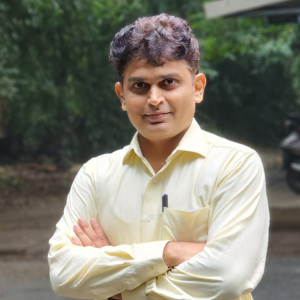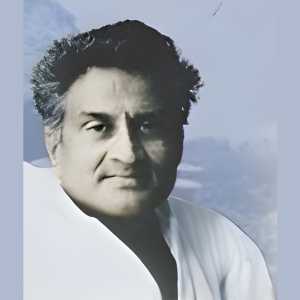+91-512-259-7629
+91-512-259-7629

I am the subsurface reservoir, a hidden yet vital force in advancing sustainable energy futures and enhancing climate resilience. The modern world owes much of its progress to my role in supplying hydrocarbons, which have powered industries and societies for over a century. However, as the world transitions to cleaner energy resources, my role is evolving. While I will continue to support sustainable energy needs in the foreseeable future, I am being repurposed from a reservoir of fossil fuels into a critical asset for carbon capture and sequestration (CCS). My deep formations, both onshore and offshore, offer safe, long-term storage of carbon dioxide, preventing its release into the atmosphere. I also hold untapped potential, offering natural gas from hydrate reservoirs and possibly white hydrogen to meet energy demands while driving a sustainable future. Unlocking these possibilities requires a deeper, multidisciplinary understanding of my structure, processes, and long-term behavior to develop innovative technologies. Today, I stand at the intersection of energy security and climate accountability, bridging the past, present, and future of the global energy system. This talk will focus on the sustainable production of hydrocarbons, as well as subsurface hydrogen storage and production, while integrating CCS strategies to build a sustainable energy future.
 Dr. Jitendra Sangwai is a Professor at the Department of Chemical Engineering,
IIT Madras. He earned his Ph.D. with Professor Santosh K Gupta at IIT Kanpur
and M.Tech. with Prof. Sirshendu De at IIT Kharagpur. Before academia, he
worked briefly with Schlumberger. His research interests are in carbon capture
and sequestration and upstream oil and gas engineering. He has published 180
international journal papers, holds 25 Indian and 18 international patents, and has
mentored 25 Ph.D. graduates, many of whom are faculty at IITs, RGIPT, and in
industry.
Dr. Jitendra Sangwai is a Professor at the Department of Chemical Engineering,
IIT Madras. He earned his Ph.D. with Professor Santosh K Gupta at IIT Kanpur
and M.Tech. with Prof. Sirshendu De at IIT Kharagpur. Before academia, he
worked briefly with Schlumberger. His research interests are in carbon capture
and sequestration and upstream oil and gas engineering. He has published 180
international journal papers, holds 25 Indian and 18 international patents, and has
mentored 25 Ph.D. graduates, many of whom are faculty at IITs, RGIPT, and in
industry.
Government of India recognized him with the National Geoscience Award, and
three National Awards for Technology Innovation. Society of Petroleum Engineers
(SPE) bestowed him with the Distinguished Faculty Achievement Award. At IIT
Madras, he is the first to win all the three major faculty awards, viz., Young Faculty
Recognition Award, Institute Research and Development Awards (both at Early-
and Mid-Career level) for excellence in teaching and research.
He is recognized as a Top 3% Highly Cited ACS Authors from India, ACS’s Most
Cited Author of Energy & Fuels, Top 1% Highly Cited Author of the I&ECR, and
featured as an ”Emerging Investigator” on the cover page of Journal of Chemical
and Engineering Data. He is an Associate Editor of Energy & Fuels and a Fellow
of the Indian National Academy of Engineering.
 Late Prof. Chetput Venkatasubban Seshadri was a distinguished Indian chemical
engineer. He started his academic career as an Assistant Professor of IIT Kanpur in
1965 and later became a full professor. Prof. Seshadri was also the Head of the
Chemical Engineering Department of IITK. He took on administrative position by
serving as the Dean of Students Affairs at IITK. Prof. Seshadri left IITK in 1974 to join
Kasturi Paper Food and Chemicals Ltd., Bangalore, where he set up India's first fodder-
yeast plant. In 1976, he joined the Shri A. M. M. Murugappa Chettiar Research Center
in Chennai as its founder Director. It was at this Research Center he helped develop
several appropriate technologies, including Spirulina Algae. For this effort, he was
awarded the prestigious Jamnalal Bajaj award for S&T for rural development in1981.
Prof. Seshadri earned his Doctorate from Carnegie Mellon University, Pittsburgh & later worked as a Research
Associate at Massachusetts Institute of Technology. His friends fondly remember him as someone who could
mould ordinary people like a potter into good scientists. Friends, relatives & well-wishers of Late Prof. C. V.
Seshadri set up Prof. C. V. Seshadri Memorial Distinguished Lecture Series under his name. The lecture Series is
conducted by the Department of Chemical Engineering.
Late Prof. Chetput Venkatasubban Seshadri was a distinguished Indian chemical
engineer. He started his academic career as an Assistant Professor of IIT Kanpur in
1965 and later became a full professor. Prof. Seshadri was also the Head of the
Chemical Engineering Department of IITK. He took on administrative position by
serving as the Dean of Students Affairs at IITK. Prof. Seshadri left IITK in 1974 to join
Kasturi Paper Food and Chemicals Ltd., Bangalore, where he set up India's first fodder-
yeast plant. In 1976, he joined the Shri A. M. M. Murugappa Chettiar Research Center
in Chennai as its founder Director. It was at this Research Center he helped develop
several appropriate technologies, including Spirulina Algae. For this effort, he was
awarded the prestigious Jamnalal Bajaj award for S&T for rural development in1981.
Prof. Seshadri earned his Doctorate from Carnegie Mellon University, Pittsburgh & later worked as a Research
Associate at Massachusetts Institute of Technology. His friends fondly remember him as someone who could
mould ordinary people like a potter into good scientists. Friends, relatives & well-wishers of Late Prof. C. V.
Seshadri set up Prof. C. V. Seshadri Memorial Distinguished Lecture Series under his name. The lecture Series is
conducted by the Department of Chemical Engineering.